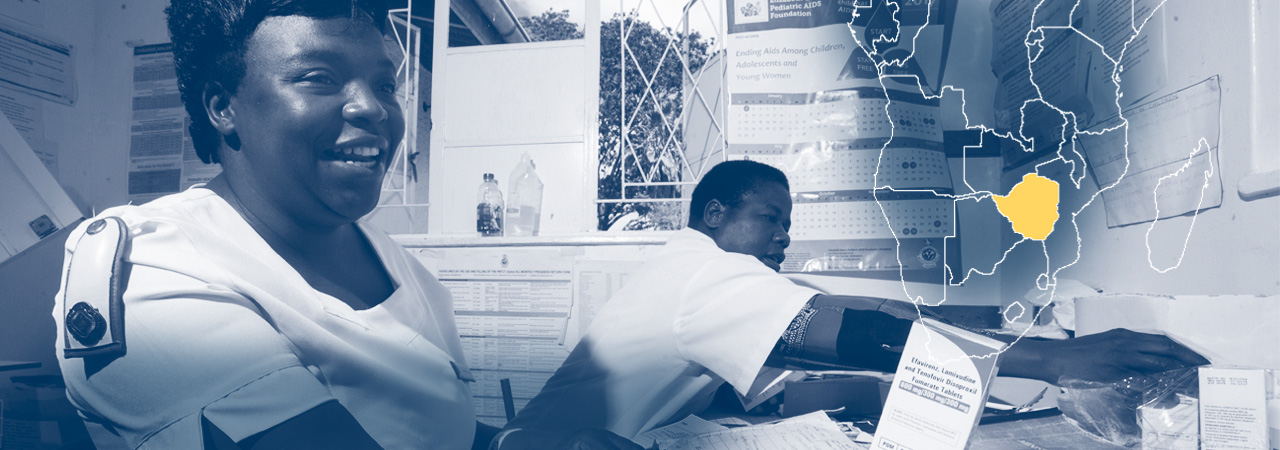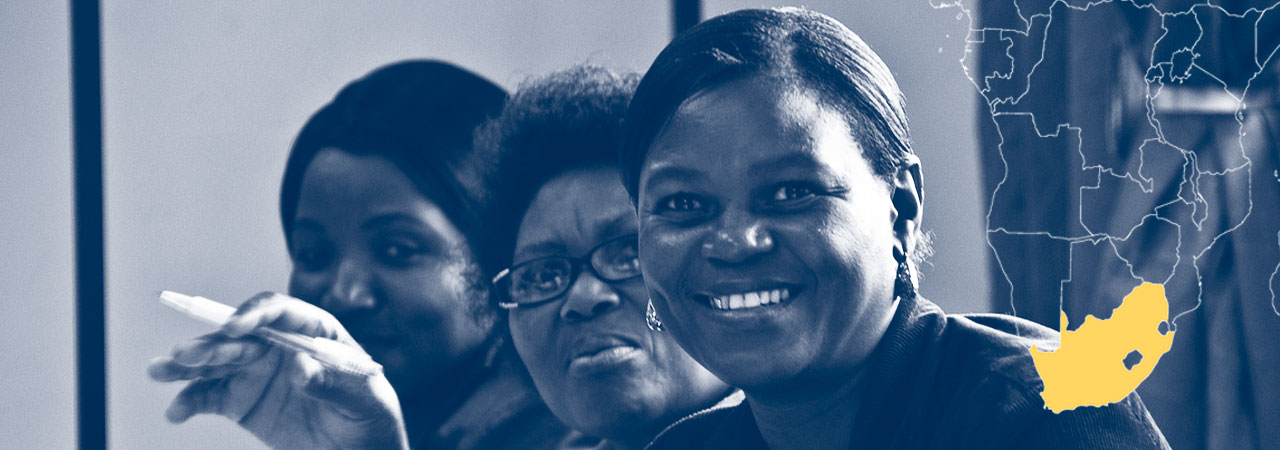Photo credit: Macpherson Photographers
There are an estimated 1.3 million people living with HIV/AIDS in Zimbabwe and the country is severely impacted by this disease. For the past 16 years, I-TECH has worked collaboratively with the Ministry of Health and Child Care (MoHCC) and other partners to strengthen the HIV response in Zimbabwe. I-TECH works together with local implementing partners and supports activities across the entire continuum of care from HIV prevention activities to HIV testing, immediate linkage to care and treatment services, management of opportunistic infections and retention in care and viral suppression.
In 2003, I-TECH began working in Zimbabwe by conducting an assessment of need and capacity for clinical and other HIV-related training in collaboration with Zimbabwe’s National AIDS and Tuberculosis Programs. With funding from HRSA, the US Centers for Disease Control and Prevention (CDC) and the US President’s Emergency Plan for AIDS Relief (PEPFAR), I-TECH provided a decade of technical support and assisted with the development of multiple training programs, evaluations, and laboratory systems strengthening.
In both 2013 and in 2018, CDC and PEPFAR awarded funding for I-TECH to continue and expand its work supporting the country’s HIV epidemic-control efforts through 2023.
In 2018, I-TECH Zimbabwe transitioned to the independent Zimbabwe Training, Technical Assistance and Education Center for Health (Zim-TTECH). Together, I-TECH and Zim-TTECH build local ownership and sustainability through collaborations throughout Zimbabwe. Under the CDC and PEPFAR awards, I-TECH and Zim-TTECH lead two consortia: ZAZIC and ZimPAAC.

